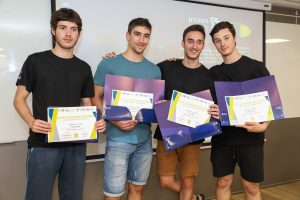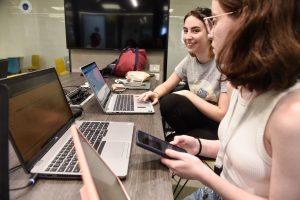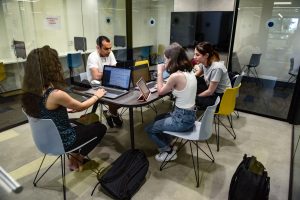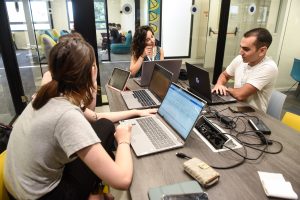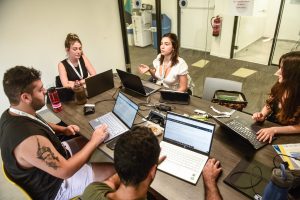From the Cloud to the Plate
In collaboration with Leket Israel, Technion students developed computational tools for predicting harvest success
Students at the Technion – Israel Institute of Technology Faculty of Industrial Engineering and Management have developed computational tools for predicting the success of harvests. These tools will help the volunteer Israeli organization Leket Israel gather unused food and distribute it to those in need, reducing food waste in the process.
A recent event was conducted between Leket Israel and the Technion in the format of a Datathon using Microsoft Azure, Microsoft’s public cloud environment that provides tools for storing information, computing, and handling big data.
The participants were all undergraduate students in the faculty, studying data science and engineering or information systems engineering. They were required to develop computational methods to predict the amount and type of produce that would be made available to Leket Israel at any given time in any region of the country. These predictions would improve Leket’s ability to plan the harvesting of the produce efficiently, further reducing food waste and increasing the donations of food to the various organizations throughout the country.
The event was opened by data science Professor Avigdor Gal, one of the initiators of the Technion’s Data Science and Engineering program in the Faculty of Industrial Engineering and Management – one of the first such educational curriculums around the world. He explained that “the event is part of the faculty’s annual extracurricular activities designed to generate social and ethical awareness among students, with the understanding that their professional occupation in the future will require access to data that impacts society, for example social media content, health data, and the like.”

Gathering for judging: deputy director-general for marketing at Leket Israel Anat Friedman-Koles, deputy director general for operations at Leket Israel Irit Davidovich, coordinator of the Technion’s Social Incubator Ronit Piso and the Dean of the Faculty, Professor Ran Samorodinsky.
According to Professor Liat Levontin, who is also a member of the Faculty of Industrial Engineering and Management, “the Datathon was designed to improve the food supply chain of Leket Israel while analyzing its collection and distribution data. Data science students from the faculty proposed technological solutions expected to reduce food waste and improve the recipients’ trust in the supply chain. As part of a large study by EIT FOOD, the European Institute of Innovation and Technology, we found that consumer trust in the food supply chain has significant implications, for example, on healthy eating habits, and we believe that the Datathon will advance consumer’s trust.”
According to Dr. Gila Molcho, director of academic projects and coordinator of the faculty excellence programs, “beyond the fun of participating in the competitive side of a datathon, the students gained experience in understanding data and extracting insights within a given time frame. Furthermore, they experienced a sense of personal empowerment and satisfaction from being part of the Data for Good experience. Our collaboration with Leket Israel will not end with the Datathon. Our information systems engineering students will continue developing a management tool for Leket Israel as part of their annual capstone project.”
The Datathon was organized by the Technion’s Faculty of Industrial Engineering and Management, Data for Good Israel, Leket Israel, the Technion’s Social Incubator and EIT FOOD – Consumer Trust Grand Challenge with the support of Tech.AI, the Technion’s Center for Artificial Intelligence.




